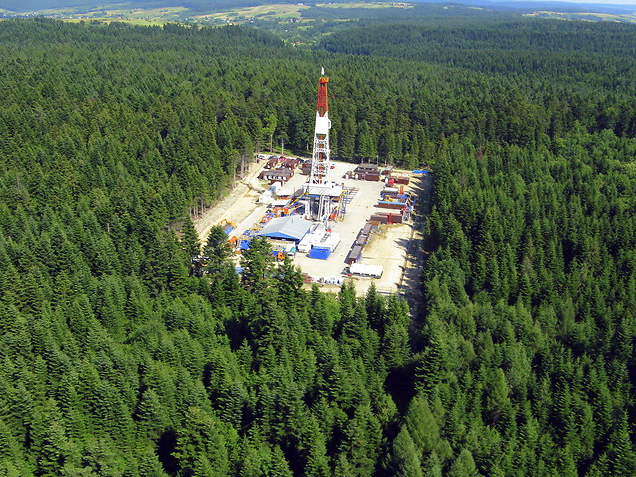EU Plan Met with Testy Russian Response
Russia lashed out Tuesday at an offer by the European Union to broker talks between energy-rich former Soviet nations Azerbaijan and Turkmenistan aimed at creating a natural gas pipeline that would carry natural gas to the West.
European countries empowered the European Commission to negotiate energy policy with the two supplier nations in a decision that European energy commissioner Güenther Oettinger’s office hailed as a “milestone in the realization of the southern corridor.”
Moscow's testy outburst over EU lobbying for construction of a trans-Caspian pipeline highlights Russian sensitivities over prospects that its grip on the supply of gas to Europe could be loosened.

Foreign Ministry spokesman Alexander Lukashevich said that only the five countries bordering on the Caspian had the right to settle issues regarding use of the inland body of water.
Under a mandate approved Monday, the EU will propose a union-wide treaty supporting the completion of the trans-Caspian pipeline. Gas carried through that route would then be fed into EU-backed Nabucco pipeline that bypasses Russia.
"Europe is now speaking with one voice. The trans-Caspian pipeline is a major project in the Southern Corridor to bring new sources of gas to Europe. We have the intention of achieving this as soon as possible," EU Energy Commissioner Oettinger said in a statement.
The planned Nabucco pipeline is slated to transport 31 billion cubic meters of natural gas from the Caspian region to Austria via southern Europe. The viability of the project has been called into question over doubts that enough suppliers can be found to fill the pipeline.
Turkmenistan has committed, in principle, to supplying the European Union with natural gas.
Azerbaijan has also committed supply natural gas to the European Union with the Nabucco, Trans-Adriatic and ITGI pipeline projects seeking to transport that gas, with their sponsors currently negotiating purchase agreements with the consortium developing the Shah Deniz Caspian offshore field, from where the gas will flow starting in 2017.
Source: Huffington Post


